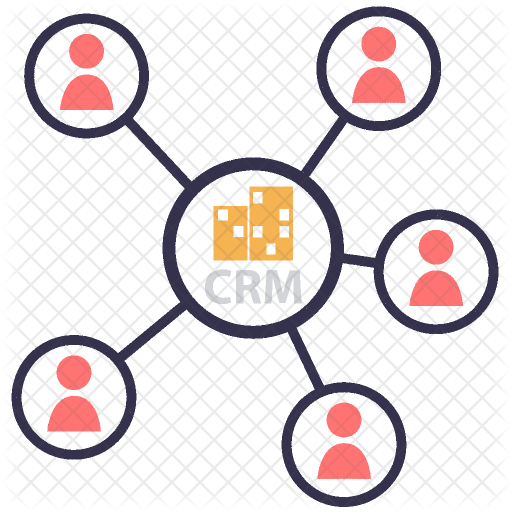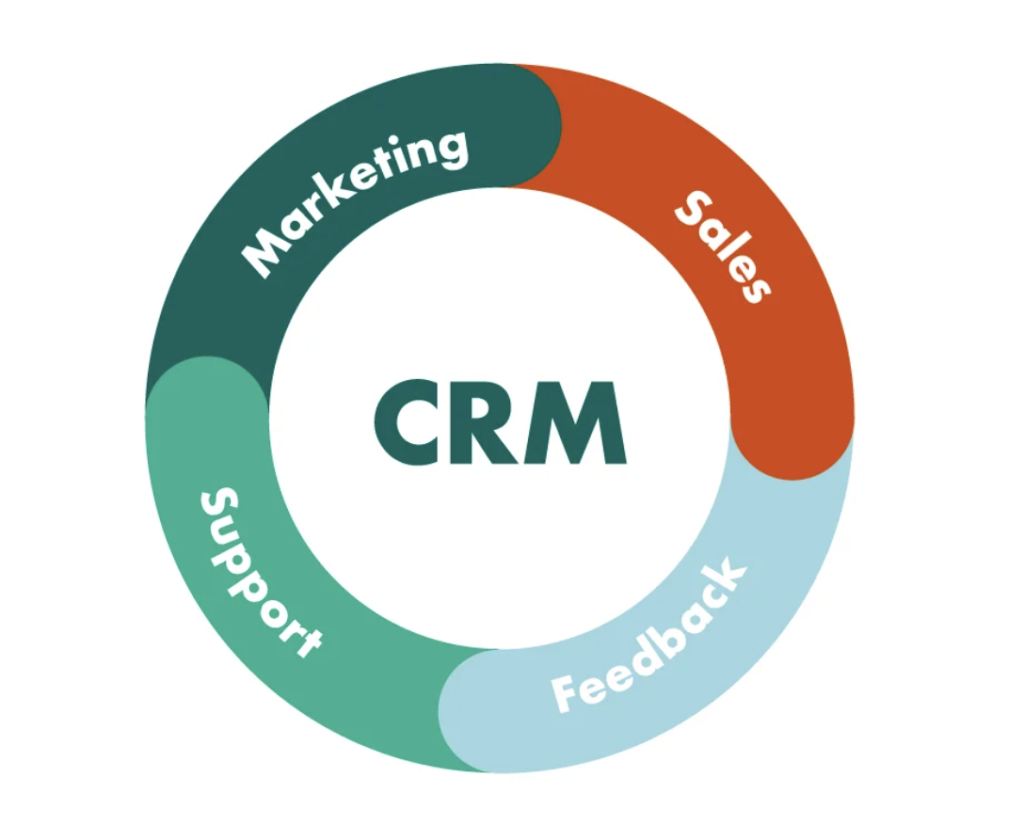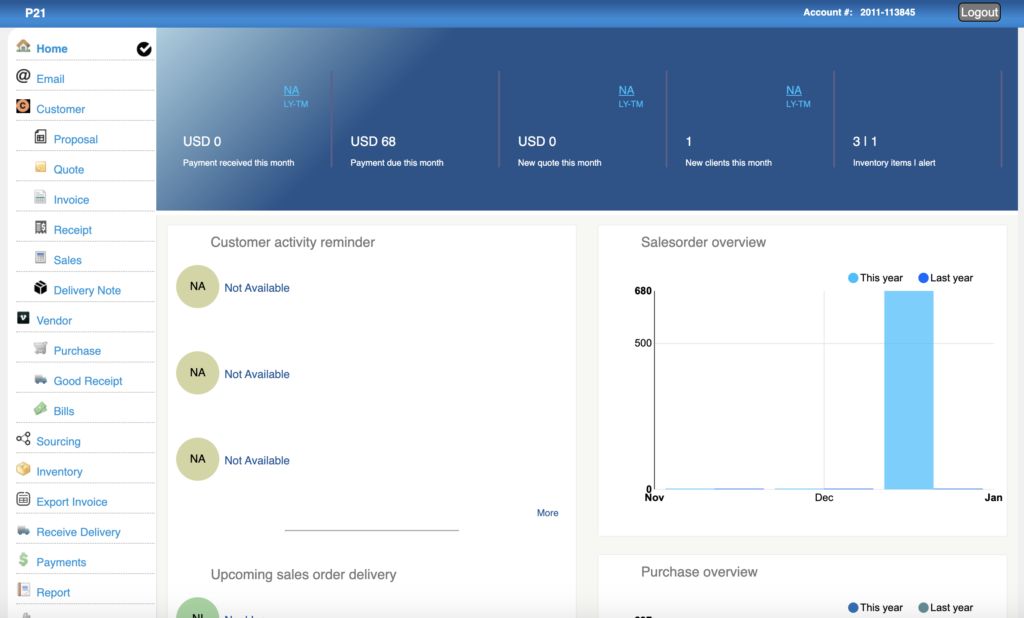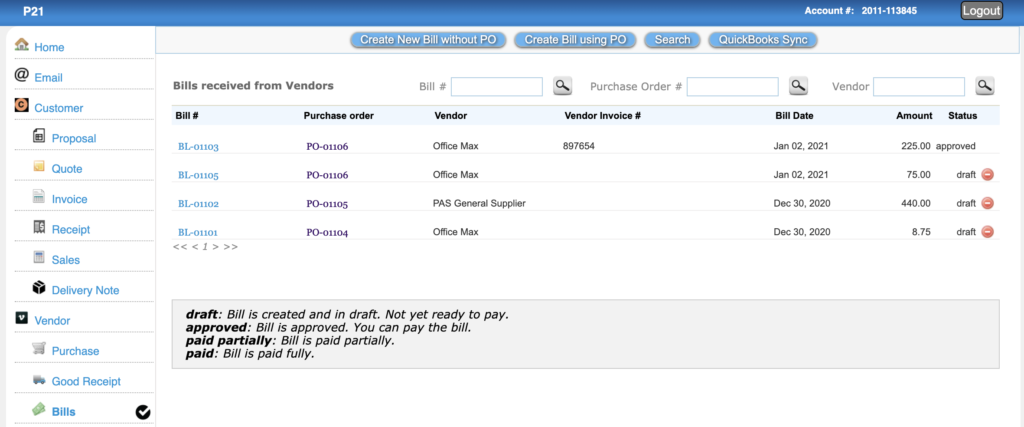What is CRM Software?
Customer relationship management (CRM) is the process of managing interactions with existing as well as past and potential customers. CRM software (customer relationship management software) is a tool that connects your different departments, from marketing to sales to customer service, and organizes their notes, activities, and metrics into one cohesive system. It is designed to help your organization offer your customers a unique and seamless experience, as well as build better relationships by providing a complete picture by keeping track of your sales, organizing and prioritizing your opportunities, and facilitating collaboration between various teams. More on it

Right CRM Strategy for Your Business
CRM is more important than ever to businesses because it can help you to gain new customers and retain existing ones. A Customer Relationship Management strategy is a plan to grow sales and improve customer service through a combination of processes, actions, and technology. It typically involves the sales, marketing, and customer service functions of a business.

A CRM system supports a strategy which says that the customer is at the center of everything that you do. This customer-centric strategy must be based on clear goals and a vision of what a meaningful experience looks like. A good CRM strategy will help you:
- Provide an enjoyable customer experience at all touchpoints of the customer journey
- Strengthen collaboration between sales, marketing, and customer service teams
- Clearly and quickly identify the most worthwhile leads and opportunities
- Keep track of your leads and customers as they move through the buyer funnel
- Carry out targeted marketing campaigns
- Produce concrete figures and data insights to inform and guide your future business strategies
CRM Software
A CRM system can be an on-premise or cloud. Today, cloud CRM software is most popularly used in the market. A CRM software is basically a combination of multiple software components. Some of the generic functionalities or software components of the CRM software are described below:
- Opportunity management which helps the company to manage unpredictable growth and demand, and implement a good forecasting model to integrate sales history with sales projections.
- Data warehouse technology, used to aggregate transaction information, to merge the information with CRM products, and to provide key performance indicators.
- Opportunity management which helps the company to manage unpredictable growth and demand, and implement a good forecasting model to integrate sales history with sales projections.
- CRM systems that track and measure marketing campaigns over multiple networks, tracking customer analysis by customer clicks and sales.
- Some CRM software is available as a software as a service (SaaS), delivered via the internet and accessed via a web browser instead of being installed on a local computer. Businesses using the software do not purchase it, but typically pay a recurring subscription fee to the software vendor.
- For small businesses a CRM system may consist of a contact management system that integrates emails, documents, jobs, faxes, and scheduling for individual accounts. CRM systems available for specific markets (legal, finance) frequently focus on event management and relationship tracking as opposed to financial return on investment (ROI).
- CRM systems for eCommerce, focused on marketing automation tasks, like: cart rescue, re-engage users with email, personalization.
- Customer-centric relationship management (CCRM) is a nascent sub-discipline that focuses on customer preferences instead of customer leverage. CCRM aims to add value by engaging customers in individual, interactive relationships.
- Systems for non-profit and membership-based organizations help track constituents, fundraising, sponsors’ demographics, membership levels, membership directories, volunteering, and communication with individuals.
- CRM not only indicates to technology and strategy but also indicates to an integrated approach which includes employees knowledge, organizational culture to embrace the CRM philosophy.

Why your business needs CRM Software?
The concept of customer relationship management started in the early 1970s, when customer satisfaction was evaluated using annual surveys or by front-line asking. At that time, businesses had to rely on standalone mainframe systems to automate sales, but the extent of technology allowed them to categorize customers in spreadsheets and lists. The origin of modern CRM software can be traced back to the late 80s and early 90s, that saw the development of Contact Management Systems (CMS), which then evolved into Sales Force Automation (SFA) technology. As the industry grew, vendors were pushed to provide a broader set of services to cover everything from marketing to presales and support.
Implementing a CRM Software
Cloud CRM Software is the right choice. It provides you always available and accessible from anywhere CRM system. You can subscribe to cloud CRM as per your need and add functionalities as your needs and business grows. Cloud provides unmatched scalability and accessibility of your CRM system.
Despite the general notion that CRM systems were created for customer-centric businesses, they can also be applied to B2B (business-to-business) environments to streamline and improve customer management conditions. For the best level of CRM operation in a B2B environment, the software must be personalized and delivered at individual levels.
Some of the ket factors you must consider for implementation of CRM software:
- Extensebility: The CRM system must have configurability to match your requirements and ability to add new fucntionalities.
- Usability: The CRM softtware must provide a user interface which easy to use for business users.
- Security: The CRM software must provide proper data and access security. The data should be securely backup for recovery.
- Mobility: The business users must be able to access the CRM system using mobile devices.

CRM Software Benefits
With Customer relationship management systems, customers are served better on day to day process. Some of the benifits of CRM software are:
- Enhanced ability to target profitable customers.
- Integrated assistance across channels.
- Enhanced sales force efficiency and effectiveness.
- Improved pricing.
- Customized products and services.
- Improved customer service efficiency and effectiveness.
- Individualized marketing messages also called campaigns.
- Connect customers and all channels on a single platform.
Why Datamoto CRM Software?
Datamoto Customer Relationship Management (CRM) software especially designed keeping in mind the need of small and medium sized organizations. The most important part of Datamot CRM is that this is a signle application which has CRM capabilities as well as inventory management system. This allows you to run your business from one application.
Some of the key features that Datamoto CRM provides are:
Centralize Contact
Maintain your contacts in a centralized address book, and have a unified view of related tasks, notes, and emails. More on Vendor and Contact Management
Track Deals and Tasks
Stay on top of your deals, manage your tasks, and follow up on your to-do items. The invoice and delivery note reflects the lot number. Instantly generates reports for a lot number across purchased, sold, and currently in the inventory.
Instant Invoice and Quote
Create invoice instantly, convert from quote, email PDF to customer, track it, create recurring invoices. Create invoices for Kit.
Multi-Currencies and Languages
Many languages support is available in invoice and creates invoices with foreign currencies, reconcile account with base currencies.
Email your invoice, quote, and order PDF document to customers. You can attach additional files to the email.
Inventory Management
Inventory management solution for small, medium, and enterprise companies and fully integrated with sales and purchase order systems.
- Multi-locations warehouse
- Stock transfer between warehouses
- Items kitting
- Bill of material
- Track item activities
- Set alerts for re-order
- Lot or batch tracking
- Integrated with sales and purchase orders
More on Purchase Order and Inventory
More on Manufacturing Inventory CRM
Field Service Management
Manage your field sales and service operations with speed and efficiency. A cloud and mobile-based application for effortless and proactive field management.
- Schedule and dispatch the right person at the right time
- The work order to track every job performed by technicians
- Track customer assets
- Search parts in the bins, trucks, or warehouses
- Equipment recall for the healthcare industry
- Purchase to invoice
- Estimate to sales order
- Vendor catalog
- Pricing tool
More on Field Service CRM
More on Medical Device Field Service CRM
Purchase Order
Enterprise-grade purchase order system to purchase inventory or non-inventory items. Drives the complete approval process with budget control.
- Multiple bills from one PO
- Create purchase orders in multiple currencies
- Purchase order approval
- Budget control
- Dropship purchase
- Goods receive
- Process bills and returns
- Multiple POs from one Sales Order
More on Purchase Order and Inventory
Flexibility
Sometimes we all make mistakes. Datamoto allows you to readjust your inventory. You can also edit a particular lot or batch. Any changes you make in the inventory are recorded and transparent to all users.
CRM Software for Small and Medium-sized Business
CRM Software (Customer Relationship Management Software) provides a tremendous opportunity for small and medium-sized businesses to run their businesses efficiently. If your sales team is increasing, you need proper visibility and control over purchases then a CRM system is beneficial to you. Implementing a CRM for your small business can help you not only organize your contacts, leads, and deals, but also automate time-consuming processes like data entry, and instead focus more attention on forming strategies and interacting with customers.
Some of the important key features a small and medium-sized organization must look in a CRM software:
- Inclusive: It is important for small and medium-sized businesses to look for CRM software which also have an advanced inventory management system along with purchase order system. This will reduce the dependency on multiple applications.
- One Application: Instead of relying on multiple applications to drive particular jobs, look for an application that has all the features in one application.
- No Implementation: Small and medium-sized companies do not have time resources to go on implementing CRM systems using consultants. Look for CRM software applications that do not require any implementation or consulting work.
- Easy to use: The CRM system should be easy to use. Be careful, a CRM system can be complex and difficult to use. This type of CRM software will not give you better ROI.
CRM Market Trend
According to Forrester research…
- Self-service for end-to-end customer journey support increases. We see companies increasing their investment in self-service technologies: marketing resource management solutions to track marketing outcomes, commerce solutions, and customer-facing configure price quote (CPQ) solutions, chatbots, knowledge management, and more.
- Artificial Intelligence and automation continue to improve CRM outcomes. We see companies prioritize robotic process automation (RPA) and bots that have clear ROI. However, we see companies struggle with larger, transformative initiatives to digitize and automate core processes.
- Hyper personalization underpins true one-to-one interactions. We see CRM use customer intelligence gleaned from unstructured interaction data to fuel true one-to-one conversations. The data will include broader demographic data, conversational styles, buying indicators, social data, life events, and relationship graphs.
- Unified CRM boosts targeted role-based experiences. We see the continued consolidation of departmental CRMs into broader business solutions.
- Customer value models accelerate ongoing customer success. We predict that success, onboarding, and CRM technologies will blur; this will provide all frontline personnel with better visibility of the customer’s value to the organization. Also, new CRM licensing models that focus on business value and outcomes, rather than software consumption, will emerge.
